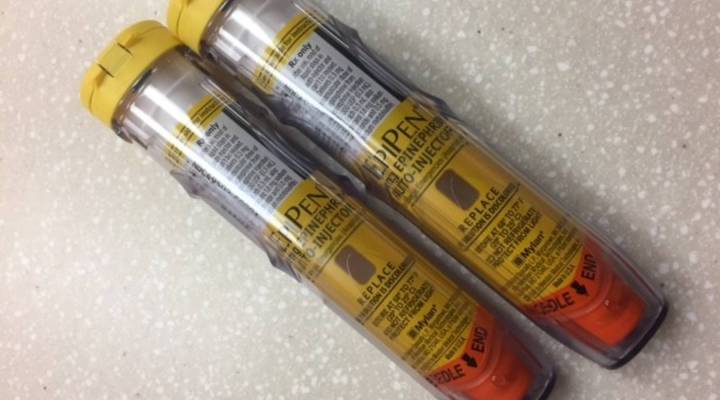
How some hospitals are replacing pricy EpiPens with a $10 version
How some hospitals are replacing pricy EpiPens with a $10 version

This fall, drugmaker Mylan has come under fire for pushing up the price of EpiPens, which treat life-threatening allergic reactions, by more than 450 percent since 2007.
It has left consumers, medical professionals and members of Congress fuming as a pair of shots now run about $600.
The University of Utah Health Care system headquartered in Salt Lake City has found a workaround that could be a blueprint for other cost-conscious hospitals.
Up until now, UUHC has stocked dozens of very expensive EpiPens in many parts of its system that includes four hospitals, a cancer institute and 10 clinics. If a patient experiences a life-threatening allergic reaction to chemotherapy or some other medication, a $300 EpiPen is often close at hand.
But beginning this week, the EpiPen is giving way to EpiKits.
UUHC pharmacist Erin Fox said kits include “a vial of epinephrine, two needles, alcohol wipes, two syringes and instructions.”
“The total cost of this kit is right around $10,” she said.

Contents of a University of Utah Health Care EpiKit.
EpiPens work with an auto-inject system, designed for consumers who need something foolproof. EpiKits are designed for medical staff, people used to handling tricky syringes.
UUHC CEO Vivian Lee applauded her team for the smart and efficient way the EpiKits should cut wasteful spending.
“It’s our responsibility to be responsible stewards of the American healthcare dollars,” she said. “One of the great things about our system here in this country is that we encourage competition, creativity and innovation. And here I’m seeing some of that innovation play out in a way that could be very beneficial to patients all over.”
EpiKits are expected to save the hospital about $35,000 a year, a rounding error on a rounding error for the $3 billion health system.
But Dr. Aaron Kesselheim who works at the Brigham and Women’s Hospital in Boston said if Utah is successful, he could see EpiKits catching on at hospitals across the country.
And the modest economic impact could become major.
“It’s sort of like the environment and making sure you recycle your individual Coke,” he said. “If everybody thinks the same way, then overall people can make a big difference together.”
Mylan – the maker of EpiPens – did not respond to comment for this story.
While the company can easily absorb the financial hit here, Mylan’s reputation may suffer if prominent academic medical centers follow Utah’s lead and drop its best-known product.
There’s a lot happening in the world. Through it all, Marketplace is here for you.
You rely on Marketplace to break down the world’s events and tell you how it affects you in a fact-based, approachable way. We rely on your financial support to keep making that possible.
Your donation today powers the independent journalism that you rely on. For just $5/month, you can help sustain Marketplace so we can keep reporting on the things that matter to you.











